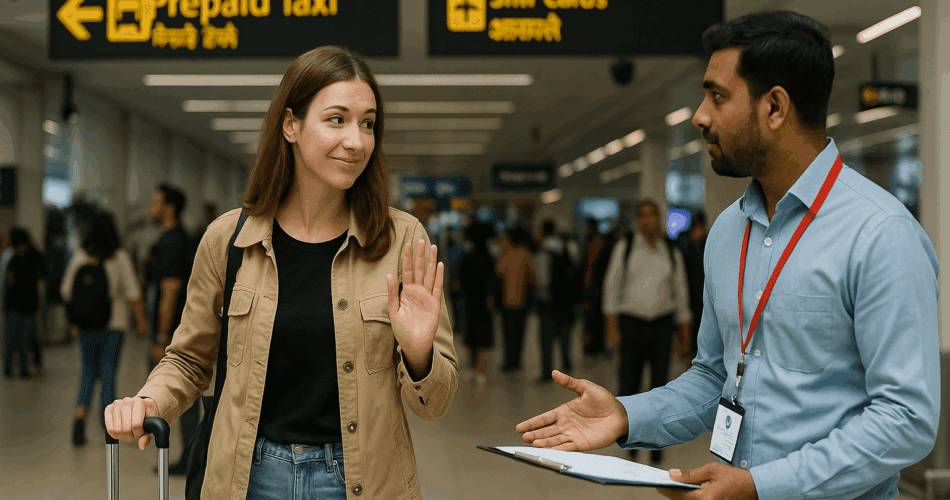Scams in india are real, and I just got back from a loop through Delhi, Jaipur, Pushkar, and Kochi where I bumped into a bunch of them so you do not have to. At the airport a smiling “helper” told me the prepaid taxi counter was closed. It was not. Outside the Red Fort two “official guides” appeared with plastic badges and a price that tripled when we reached the gate. In Pushkar a man pressed a flower into my hand, rushed me to the ghats, and tried to turn a blessing into a huge “donation.”
There were smaller moments too. A shop tried to charge above the printed MRP on a water bottle until I pointed to the label. A tuk-tuk driver swore his meter was broken and then offered a “cheap city tour” that was really a circuit of commission shops. A café had a swapped QR sticker at the register, which I caught by checking the merchant name in my UPI app.
India is wonderful and welcoming, and most people are kind. A few are just very good at fast talk. I learned simple moves that kept me relaxed, saved me money, and let me enjoy the chaos in the best way. I will share exactly what to do the moment you land, how to spot the pitches, what to say with a smile, and when to walk away.
Your First Hour After Landing
Airports are busy, bright, and full of helpers. Some are real. Some are not. Take a breath, get your bearings, and follow signs to official services.
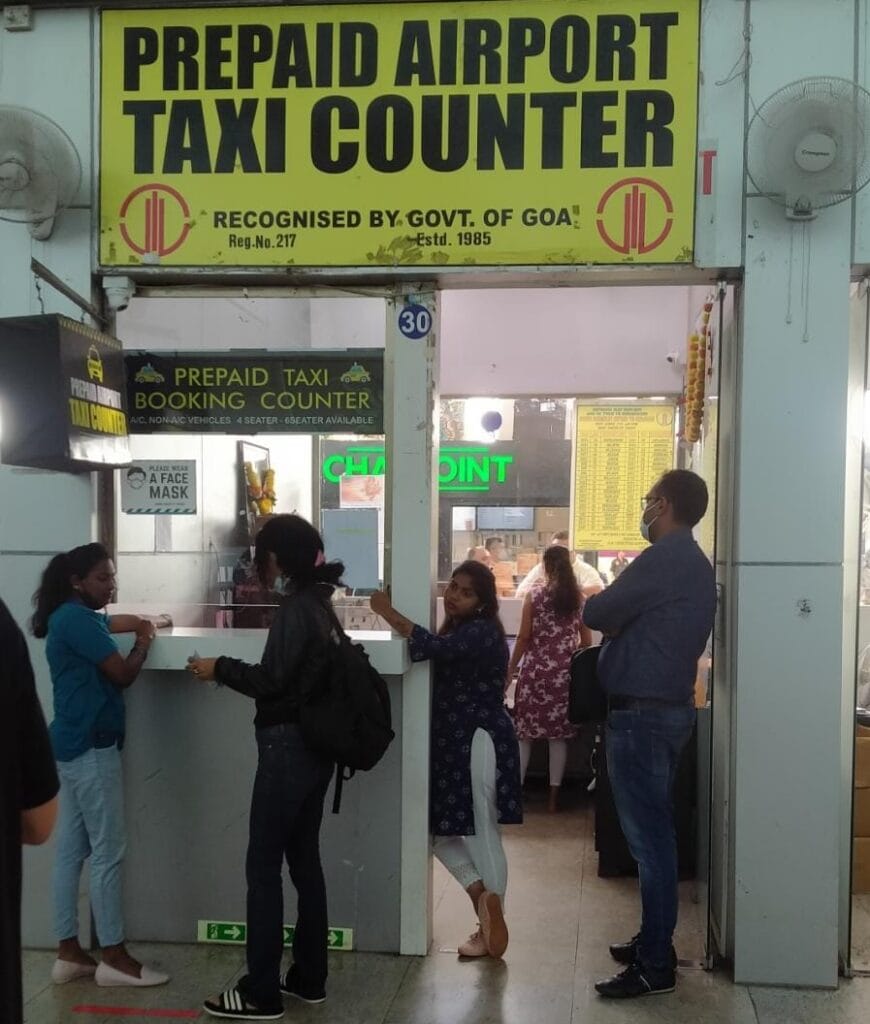
Airport rides that do not trap you
Walk to the prepaid taxi counter inside the terminal, or use Ola and Uber at the marked pickup zone. Pay at the counter or in the app. You will get a receipt or a driver plate number. Match the plate before you get in the car. If anyone says the counter is closed or your hotel is far or unsafe, keep walking. That line is one of the oldest scams in india at arrivals. If a driver claims the meter is broken, thank them and choose another car.
Scripts that work:
“No thanks, I already have a pickup.”
“Prepaid only.”
“Meter se chaliye, please.” (Please use the meter.)
SIM cards and cash without drama
Buy a SIM at an official telecom desk with your passport and a small photo. If a kiosk promises instant activation for a big mark-up, skip it. For cash, use ATMs inside bank branches at the airport. Keep your first withdrawal small so you have mixed bills for taxis, snacks, and tips.
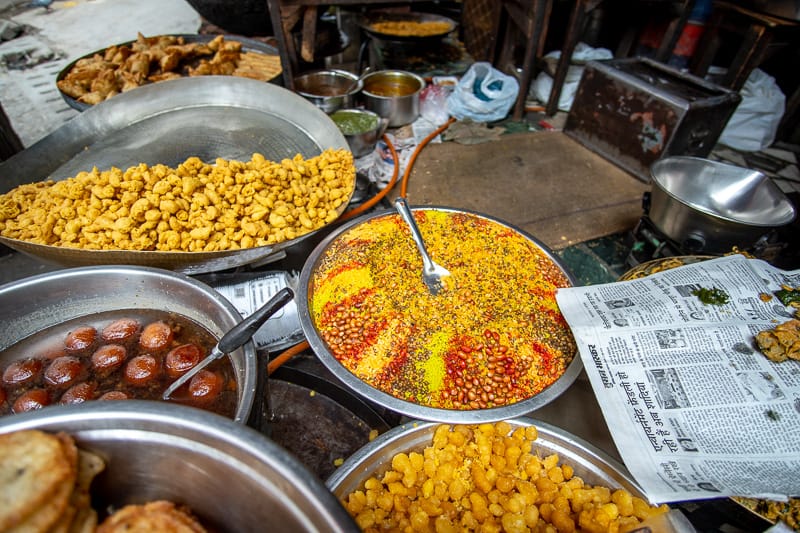
How Pricing Works On The Street
Knowing what things should cost removes half the stress. Learn two ideas on day one and you will spend less and argue less.
Read the MRP on packaged goods
Most sealed items have a printed MRP, the Maximum Retail Price. Shops should not charge above that amount. You will find the MRP near the barcode. If the clerk quotes more, point to the MRP and pay only that price. This protects you on water, soda, chips, and cookies. It also helps when night stalls try to add a “tourist price” on sealed products.
Street food without the surprise bill
At busy carts, prices are often posted. If not, ask “Kitna?” before you order. Watch what locals pay. Pay with small notes after you receive the plate. If you need change, count it. Vendors move fast. You should too. Do not put your phone on the counter. Keep it in a pocket with a zipper while you eat. These small steps keep a cheap snack cheap.
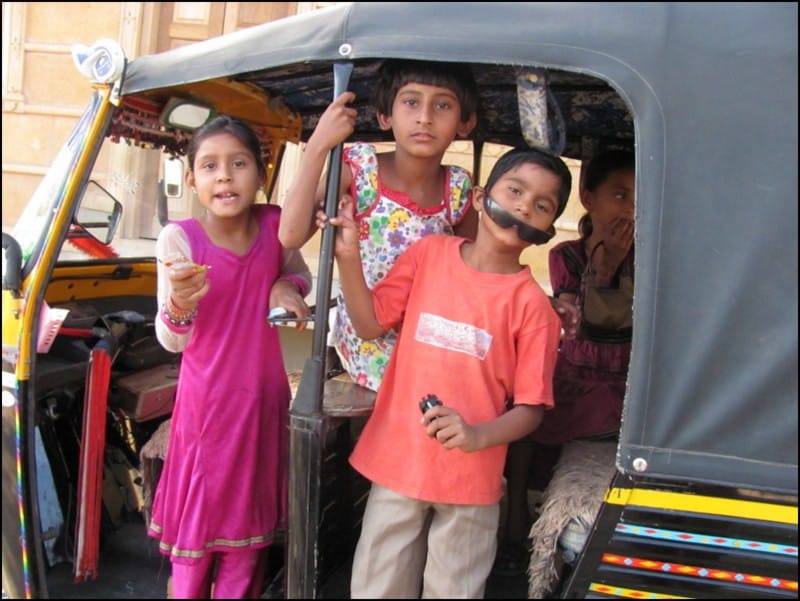
Transport Traps And How To Avoid Them
Moving around is part of the fun. You can do it well with a few habits to avoid any scams in India.
The rickshaw routine
Auto-rickshaws are everywhere. If there is a meter, ask the driver to use it. If not, agree on a price before you move. Ask your hotel for a fair range first so you have a target. Track your route on Google Maps and speak up if the driver detours. If a driver wants to “pick up a friend,” say no and ask to continue directly to your stop. If the car slows on a side street and you feel unsafe, end the ride near a busy shop and walk into it.
Fake closures near famous sights
You will meet people who say the site is closed or the ticket office has moved. They will offer a “better” temple, market, or office. Smile and keep walking to the real gate. Buy tickets online in advance when possible. If someone says your prepaid ticket is fake, ignore them and show your QR code to a uniformed guard at the gate.
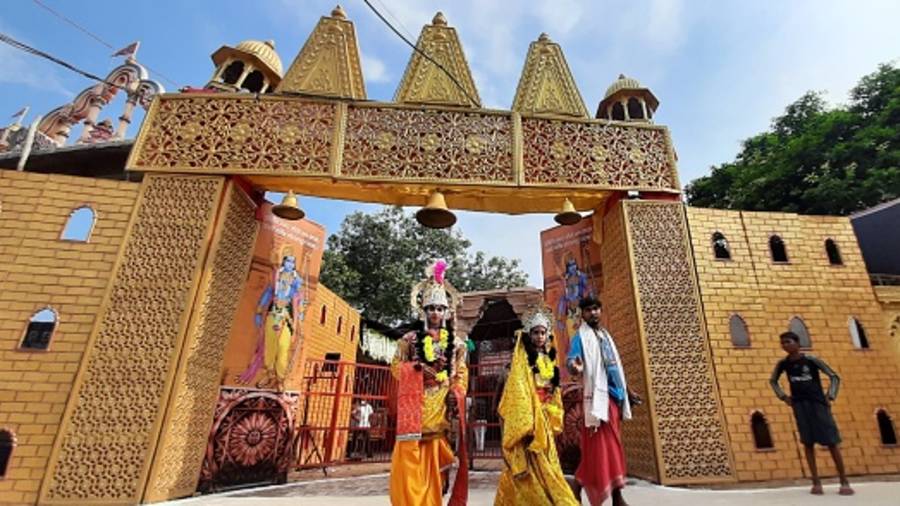
Tours, Guides, And Tickets You Can Trust
A good guide can make a place come alive. A fake guide can waste your morning.
Spot the real guide
Licensed guides at major sites wear badges and can show an ID. Ask the price and the time up front. Pay at the end. Safer choices include guides from your hotel, state tourism counters, or well known booking platforms. If someone walks up and starts guiding you without agreement, say “Nahin chahiye, thank you” and walk away.
Train tickets without headaches
Use IRCTC, station counters, or a reputable agent with an office and a landline. Before you pay, check the train number, class, and seat. Avoid anyone who promises a first-class express and then hands you a local ticket. If you are new to the system, book a day early so you have time to adjust.
Temple And Ritual Pressure Tactics
Temples and lakes are sacred spaces. Respect them and protect yourself.
Pushkar’s flower and blessing pressure
At the ghats in Pushkar, men in white will try to put a flower in your hand and lead you to the steps for a “blessing.” Once you sit, they may demand a large “donation.” The fix is simple. Keep your hands closed, do not take the flower, and do not make eye contact. If you already sat down, give a small note, stand, and leave together. Do not allow yourself to be separated from your friend.
Bracelet or bindi “gifts”
In busy areas, someone may tie a bracelet on your wrist or place a bindi on your forehead, then demand payment. This is common in many countries. The best answer is to smile, say no, and keep moving. If you already have the item, offer a small coin or ask them to remove it. Watch your pockets while you speak. Crowds create easy cover for a pickpocket.
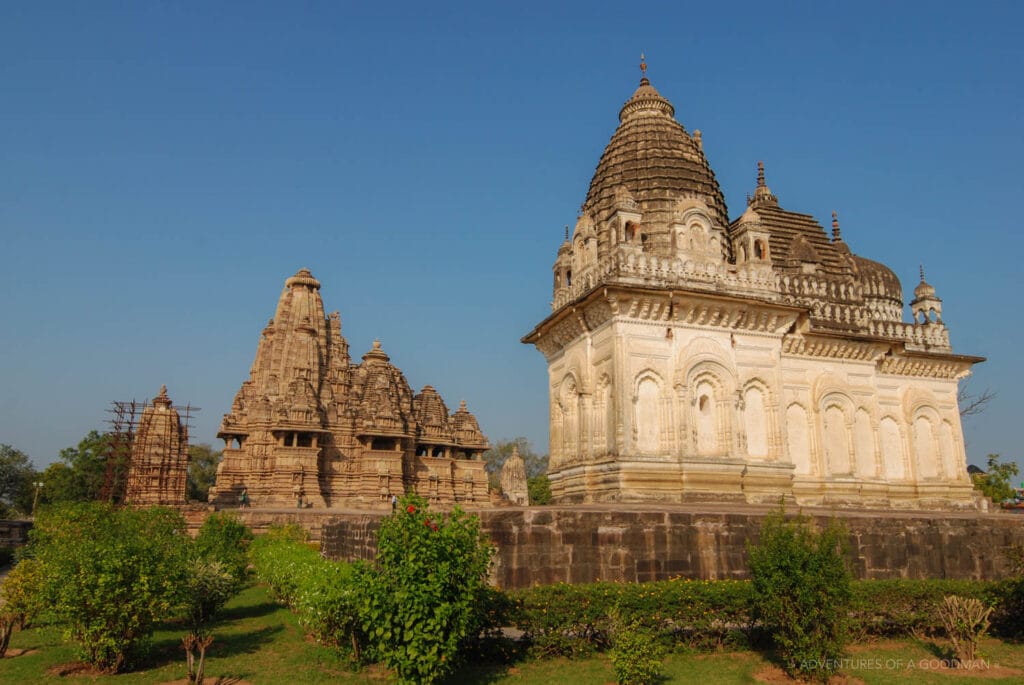
Luggage And “Help” You Did Not Ask For
If someone grabs your bag to “help,” the help can turn into a bill.
Unsolicited porters
At bus stands and stations, people will reach for your bags. Hold your own straps and say you are fine. If you want help, use official porters in uniforms and agree on the price before anyone lifts your bag. Keep one small bag on your shoulder with your passport and phone. If someone already has your suitcase and demands a lot of money, move toward a police booth or a ticket counter and resolve it there.
“Poo on your shoe” cleanup
In crowded places, a person may smear a brown paste on your shoe. A second person will rush in to clean it for a fee. Do not let them touch your things. Step away. Walk to a public bathroom. Clean it yourself. This tactic only works if you stop and engage.
Hotel And Shopping Pitches
You can find great rooms and good deals. Just choose how you decide.
“Your hotel is closed” pitch
A tout may tell you your hotel shut down and offer a different place. Do not take their word. Call your hotel with the number on your booking. Most of the time, your room is waiting. If you want to see a new property, go look, but do not give up your original room until you decide.
Counterfeit goods and jewelry deals
Markets are fun, but brand-name items on a small table are almost always fake. Electronics often fail. For jewelry and gems, use certified shops with receipts and return policies. For expensive stones, get a third-party appraisal before you pay. For art and textiles, buy from co-ops and studios where you can meet the maker and see how the work is made.
Menu swaps and padded bills
Take a photo of a posted menu before you sit down. When the bill arrives, check taxes and totals. If you see items you did not order, ask politely for a correction. Paying at the counter helps avoid “wrong change” games at the table.
Digital Era Pitfalls
Phones and easy payments make life simple. They also create new tricks to avoid.
QR and UPI sticker swaps
In shops and at street stands, some bad actors place a fake QR code over the real one. When you scan it, the money goes to the wrong account. Pay at the register. Confirm the merchant name on your screen before you hit send. If something feels off, use cash or a card instead.
Card terminals and ATM safety
Use ATMs inside bank branches during daylight. Shield your PIN. If a terminal offers to charge in your home currency, decline and pay in local currency to avoid hidden fees. If a waiter takes your card away from the table, follow them to the terminal. Better yet, ask them to bring the machine to you.
The “Closed Office” And Ticket Re-Route
Near big attractions, you might hear that the ticket office has moved or your online ticket is fake. The person will offer to “help” at a new office across the street. Keep walking to the real entrance. Show a guard your online ticket. If you still need to buy, use the official kiosk or the site’s website on your phone.
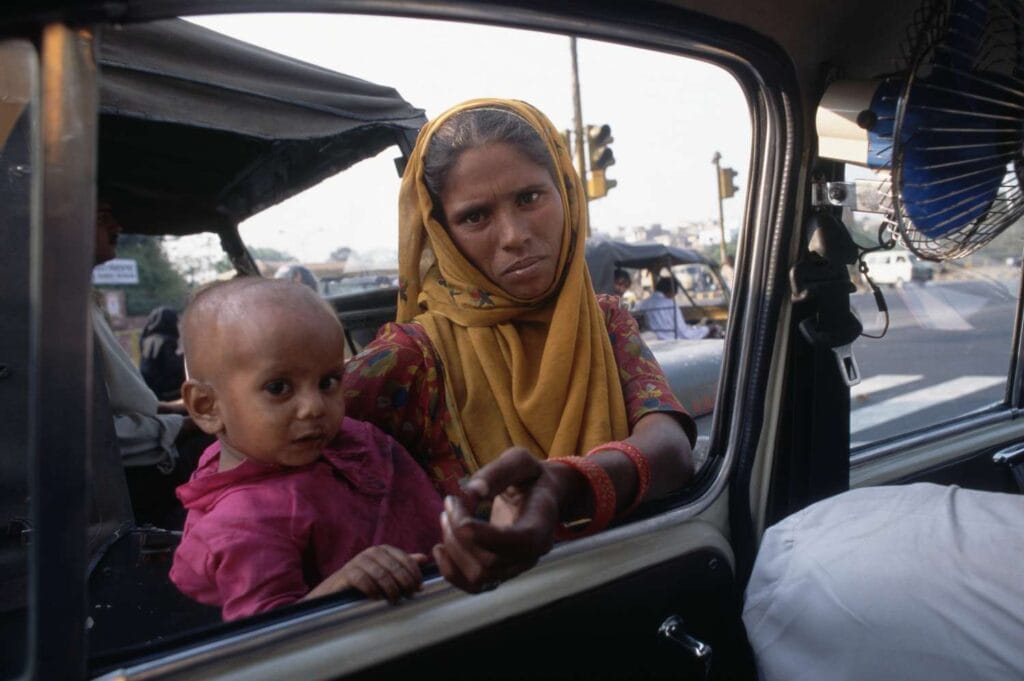
The “Begging For Essentials” Loop
A woman with a child may ask you to buy baby formula or milk from a nearby shop. It feels kind to help. Often, the shop is part of the act. You pay a high price, and the product is returned later for cash. If you want to give, donate to a known charity or buy a meal you can do so directly. Do not hand over your wallet. Keep your cash in more than one pocket so you can give small amounts without revealing your full roll.
City And Season Context
Where and when you travel shapes your experience. Knowing the rhythm helps.
Where touts cluster
Around train stations, major temples, and big markets, you will meet more sellers and more pitches. Old Delhi near the Red Fort, parts of Jaipur around the Hawa Mahal, and the area near the Taj Mahal in Agra are lively and full of offers. This is part of the scene. It is not a reason to avoid the area. It is a reason to keep your plan, walk with purpose, and choose who you speak to.
Time of day and festivals
Crowds grow at night and during holidays. Pickpockets love crowds. Keep your bag in front of you. If a lane feels too tight, step into a shop and wait a minute. Big festivals are beautiful and loud. They also increase street hustle. That can raise the number of small scams in india during peak hours. Plan arrivals in daylight when you can.
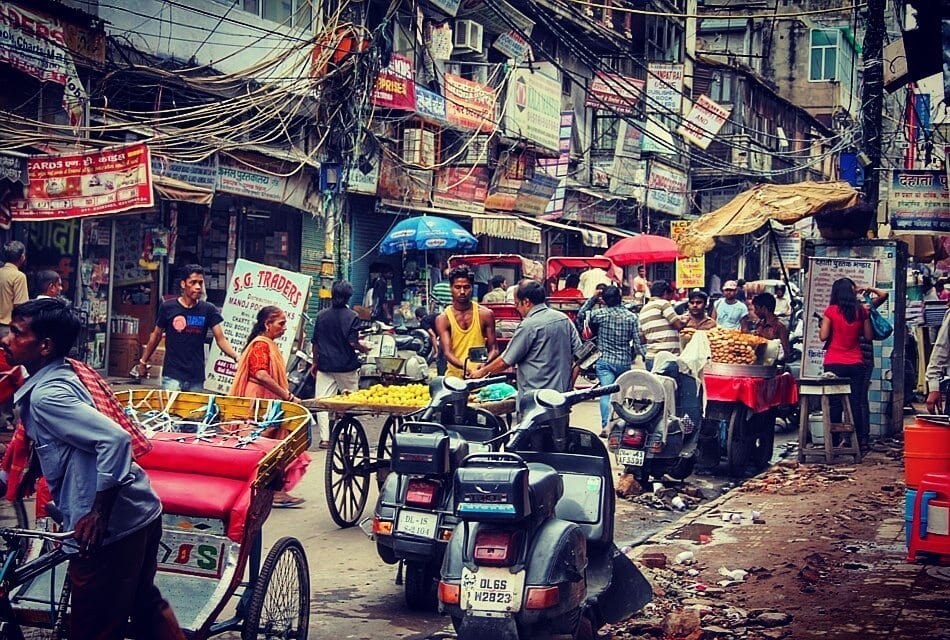
What To Do If You Are Targeted
You will save time if you do not try to win the argument. Your goal is to exit fast and keep your mood.
De-escalate and move
Lower your voice. Repeat one line. “No thank you.” “Not interested.” “I have a booking.” Walk toward an official counter, a hotel desk, or a police booth. Do not follow a stranger to a quiet side street. If someone touches your arm or bag, remove the hand and keep walking. If you feel unsafe, step into a shop or café and speak to staff.
Document what matters
If you need to report something, take a photo of a vehicle plate, a guide badge, or a receipt. Share it with your hotel. They can help you decide if you should file a report or simply move on. Most problems are small and end the moment you exit the conversation.
Packing And Prep That Prevents Problems
A few items and habits will make your days smoother.
Small bills and simple wallets
Carry small notes for snacks and tips. Keep a day wallet with only what you need. Store a backup card in a hidden pocket. Split your cash in two places. If someone sees a thick wad of notes, the price of your next tuk-tuk ride will climb.
Offline maps and key phrases
Save your hotel address in English and the local language. Download offline maps for your city and any day trip. A few words help a lot: “Kitna?” for how much, “Zyada hai” for too much, “Nahin chahiye” for I do not want it. A smile can soften a firm no.
Dress and body language
Wear what is comfortable and modest for the place you visit. Move with purpose. Look at signs. Check your phone like you know where you are going. When you project calm, fewer people choose you for a pitch.
Real-World Examples And Fixes
Stories teach fast. Here are common setups and the move that works.
The “cheap city tour”
A driver offers a low price to see many sights. The tour becomes a loop of shops where staff push rugs, gems, or perfume. The fix is to set your stops in advance. Say you will not visit shops. If the driver insists, pay what you agreed for the time so far, then get out near a landmark and reset your day.
The “gift in your hand”
At a temple, someone puts a string on your wrist or a flower in your hand. Now they claim you accepted a blessing and owe money. The fix is to keep your hands closed and walk on. If you already have the item, give a small coin, say thank you, and leave. Do not wait for a long list of prayers.
The “hotel upgrade”
A tout says your hotel is closed and offers a new one. You arrive and the price is much higher than you would ever choose. The fix is to never give up a booking until you verify with your hotel. If you want to see the new place, tell the tout you will return after you visit your original hotel. Most of the time, the new plan will not sound so great once you see it in daylight.
A Simple One-Page Plan To Avoid Scams In India
At the airport: prepaid taxi or app, official SIM, bank ATM.
On the street: read the MRP, ask price first, pay with small notes.
In a rickshaw: meter or set fare, route on your map, no extra riders.
At temples: accept nothing in your hands, give a small donation only if you choose.
For tours: licensed guides, clear price, pay at the end.
For tickets: official websites and counters, not “new offices” down a lane.
For shopping: certified stores for jewelry, co-ops for crafts, receipts for big buys.
For digital pay: confirm the merchant name on UPI or card terminal, avoid fake QR stickers.
If pressed: repeat one polite line and walk toward officials or a shop.
End the day: write down any issues and your wins. Tomorrow will be easier.
FAQs To Avoid Scams In India
Is it safe to visit with kids or solo?
Yes. Use the same habits. Plan arrivals in daylight, book pickups with your hotel, and choose central areas for your first nights.
Should I tip taxi drivers?
Round up small amounts. If the service was great and a fair price was used, add a little extra. Do not tip on top of an inflated fare.
How do I report a scam?
Tell your hotel. For serious issues, use local police or tourist helplines. Photos of plates and receipts help.
What about water and food safety?
Buy sealed bottles at MRP and check the seal. Choose busy food stalls with high turnover. Watch dishes being washed and avoid anything that has sat in the sun.
You do not need to fear street life or avoid talking to people. You need a few clear steps that you use every day. Save your hotel address. Choose official counters. Ask prices first. Keep small amounts of money handy. Say no with a smile and keep walking. With these habits, scams in india turn into small moments that you pass on your way to the good stuff. The more you travel, the better your radar gets. Soon you will be the calm person other travelers ask for help. You will show them how to read a scene, how to enjoy the noise, and how to leave a pushy pitch behind. Travel well, stay curious, and let the great days outnumber the odd bumps.
